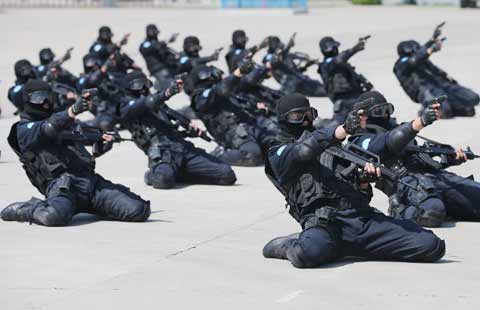On World Hepatitis Day, think again about lifelong prevention
Updated: 2014-07-28 20:40
|
|||||||||||
Significant success has been achieved worldwide through vaccination programs designed to combat many terrible diseases. Each year, more than 3 million children’s lives are saved by vaccination. Yet 2 million children still die from preventable illnesses each year, simply because they have not been vaccinated.
Hepatitis B provides a case in point. A potentially life-threatening infection, it can cause chronic liver disease, and increases the risk of death from cirrhosis and cancer. Babies infected at birth are infected for life, but often remain asymptomatic for decades, during which time the liver is damaged and the virus can be transferred to others.
The Hepatitis B vaccine is a mainstay of prevention and the World Health Organization (WHO) recommends that all babies be vaccinated in the first 24 hours of life. Doing so would have a global effect, as more than 240 million people have chronic liver infections, and more than 780,000 die each year from acute or chronic Hepatitis B.
Sadly, however, many children go unvaccinated, owing to public complacency about the need to protect them. Another problem is fear – not of the disease, but of the vaccine itself. In recent years many parents have opted out of vaccinating their children. The reasons usually centre on the perceived risk of the vaccine rather than the actual risk of the disease. Sometimes there is a backlash against successful vaccination programs. A discussion about what may go wrong can sometimes make us quickly forget about how much has gone right.
China’s Hepatitis B vaccination programs are a good example.
The Safe Motherhood Initiative, a program that encouraged women to give birth in a clinical setting, China’s Maternal and Child Health program, and the Expanded Program on Immunization can claim much of the success in reducing the incidence of Hepatitis B. The risk of contracting Hepatitis B is greatest at birth. By providing the vaccine to millions of infants in the first 24 hours of life, the rate of infection among Chinese children has been reduced by 90%.
In December 2013, media coverage of a suspected ‘cluster’ of infant deaths led to concern that Hepatitis B vaccine had been the cause of the deaths. As a precautionary measure, China’s food and drug regulators launched an investigation and temporarily suspended one of the country's three biggest Hepatitis B vaccine makers.
Today's Top News
Developers placing bets on casinos overseas
Scrutiny on iPhone data access
Russian fighter jet crash kills pilot
US-Russia relations frosty
Harsher safety measures urged amid scandal
Drills to have 'little impact' on civilian air services
Revision of decree protects military airports
Experts slam Japan's bid to break order
Hot Topics
Lunar probe , China growth forecasts, Emission rules get tougher, China seen through 'colored lens', International board,
Editor's Picks

|

|

|

|

|

|





